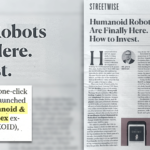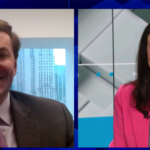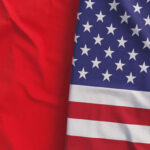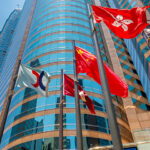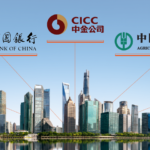
A Fireside Chat With Louis Gave From Gavekal Research On China’s Economy, Markets, & Politics
Few people can articulate China’s relationship with the West as well as Louis-Vincent Gave. As a former banker and French national living in Hong Kong, Louis-Vincent Gave is a veteran China myth buster. He and his firm Gavekal are sought after for his opinions on China’s economy, markets, and politics. He established the research firm in 1998, expecting Asia would become an important factor in global growth.
Last month, KraneShares CIO Brendan Ahern sat down with Gave for a fireside chat on Hong Kong and China's politics, and markets. Below we have summarized our key takeaways from the conversation. You can also listen to their complete discussion through the MP4 file embedded below.
Gave started the conversation by discussing the changes he witnessed from his vantage point as a French national residing in Hong Kong. He said that Hong Kong and New York are the only two cities worldwide that truly give visitors an immediate "adrenaline rush." He thinks this remains the case, though he acknowledged some of the challenges Hong Kong has faced recently, mostly since 2015, have caused the city to lose some of its allure to foreigners.
In the first two decades of the 21st century, the most significant changes occurred in Mainland China, while Hong Kong was already a major international business destination. Notably, Shenzhen emerged as a technology innovation hub at Hong Kong's doorstep. Hong Kong grew, too, during this period, becoming an access point for Mainland China, which was seeing such explosive growth.
In 1997, Britain's 99-year lease of Hong Kong's territory ended, and the city-state returned to the authority of the People's Republic of China (PRC) as a special administrative region (SAR). Gave said that residents and visitors alike had been comfortable with this arrangement until 2019 with the passage of the Hong Kong National Security Law, which gave some foreign residents pause and led to uncertainty about Hong Kong's future.
The second significant challenge was the pandemic. As Western countries began removing pandemic restrictions in 2021, Hong Kong did not follow suit as the city fell under China's zero COVID policy. The lockdowns caused many expatriates to leave the city as Hong Kong's expatriate population decreased from 6% of the total population before the pandemic to only 2% today. Nonetheless, Gave still lives in Hong Kong and does not intend to move.
Gave said that the challenges Hong Kong has faced in recent years illustrate the disconnect between China and the West. Gave noted that a common trope in Chinese painting is a large, imposing landscape with small, seemingly insignificant depictions of people in the foreground.
Gave said that China's philosophical and ethical tilt is towards the rights and flourishing of the society as a whole, rather than those of the individual, considered more important in the West. He notes that this philosophical dichotomy between East and West played out in a rather conspicuous way during the pandemic. China's zero COVID or "Lives First" policy expressed this ethical hierarchy. Society's needs were prioritized, even if at the expense of personal liberties.
Gave also reflected on China's recovery since repealing COVID restrictions. He said that this approach has also differed from the West significantly. In the US, consumers received direct stimulus during the pandemic. Then, as the brick-and-mortar and services economy returned, wages rose to combat the labor supply shortage.
On the other hand, China exercised a high degree of conservatism in stimulating the economy both during and after the pandemic. He said sarcastically, "While the US is eating chocolate cake daily, China has been eating broccoli." In Gave's opinion, China's approach derived from a willingness to accept short-term discomfort for a long-term payout. In other words, while providing stimulus in the form of direct-to-consumer payments and helicopter money, which was the approach taken in the West, would have yielded relief from immediate economic issues and powered a strong 2023 rebound in consumption, doing so would have impeded China's progress towards long-term, structural goals, such as deleveraging the real estate sector.
Gave then spoke to the geopolitical concerns currently gripping the Western world regarding relations with China. He thinks the US media tends to exaggerate the risks of a conflict in the Taiwan Strait. He said that although Taiwan's defense spending has increased slightly in recent years, the long-term trend has been a significant decrease in the island's defense spending. Moreover, residents do not appear to be living in daily fear of conflict, as some in the US might have you think. Relations with Mainland China will feature prominently in the upcoming 2024 elections. Public opinion is divided between those who desire further integration with the Mainland, whom the KMT party represents, and those who do not, represented by the incumbent DPP.
On financial markets, Gave believes that the equity market has become a priority for domestic economic leaders. However, he notes that this is a departure from the previous policy direction, which favored the bond market. He has been bullish on China's bond market for the past ten years with the belief that the positive performance of the bond market was in line with the government's priorities, which include making China's currency a feasible alternative to the dollar. And, over the past two years, China's government bonds have massively outperformed US treasuries. Now, Gave says the government is saying that they want equity investors to make money, too.
We were pleased to have this insightful conversation with Louis Gave and encourage our clients and subscribers to check out Gavekal Research for an unbiased, on-the-ground, data-driven approach to reporting on China.

